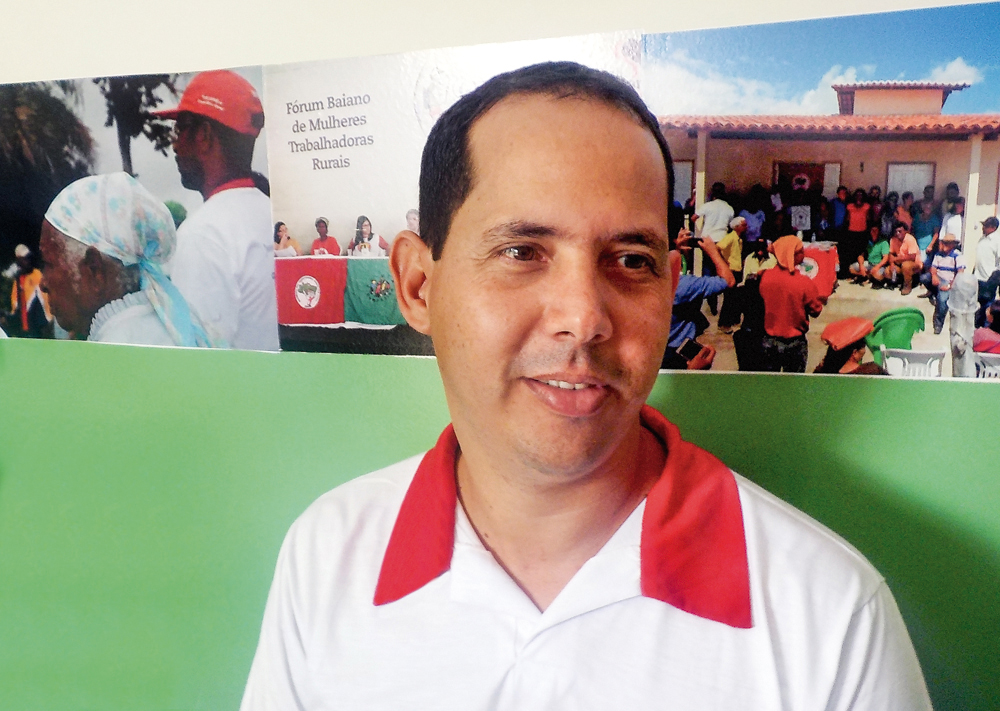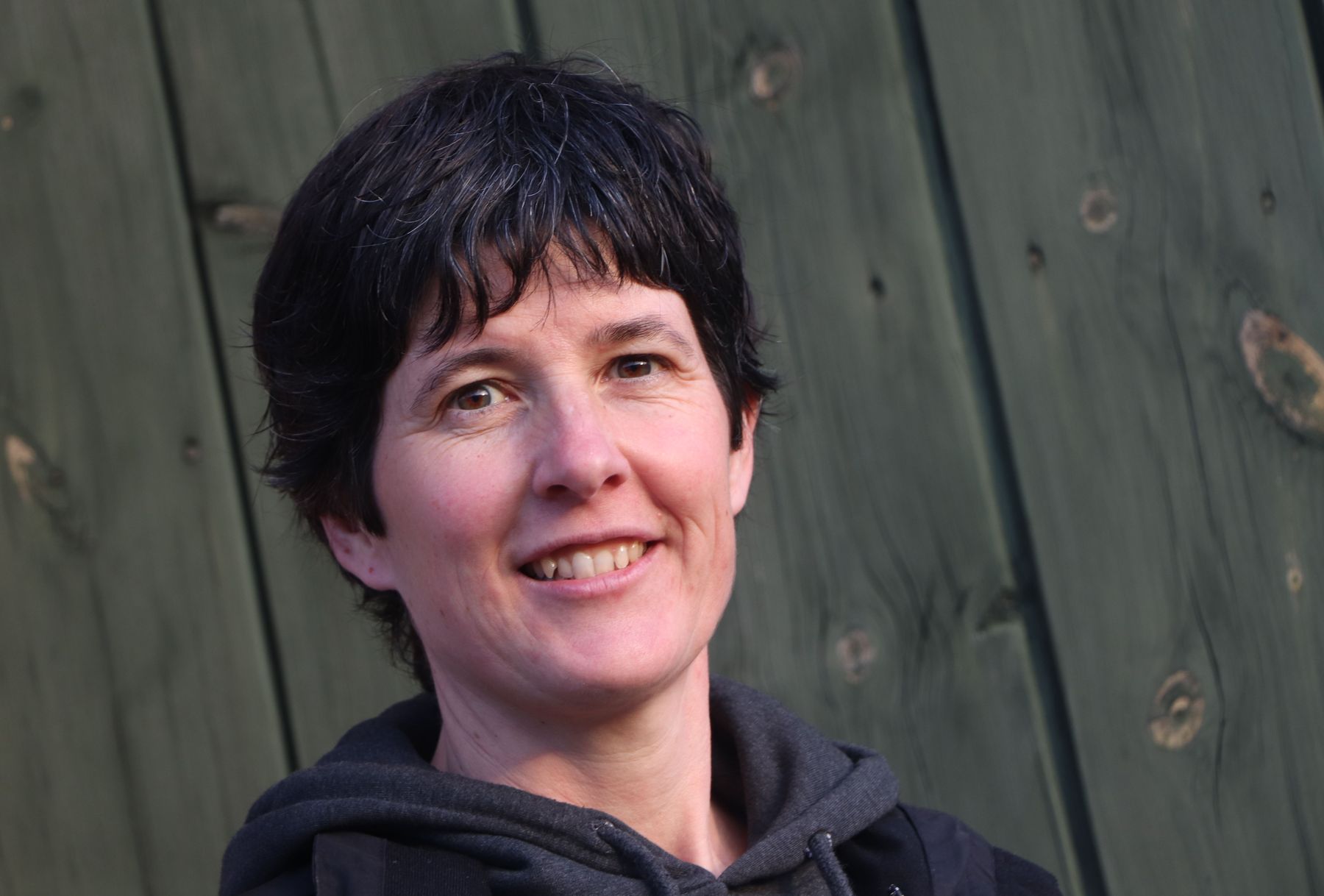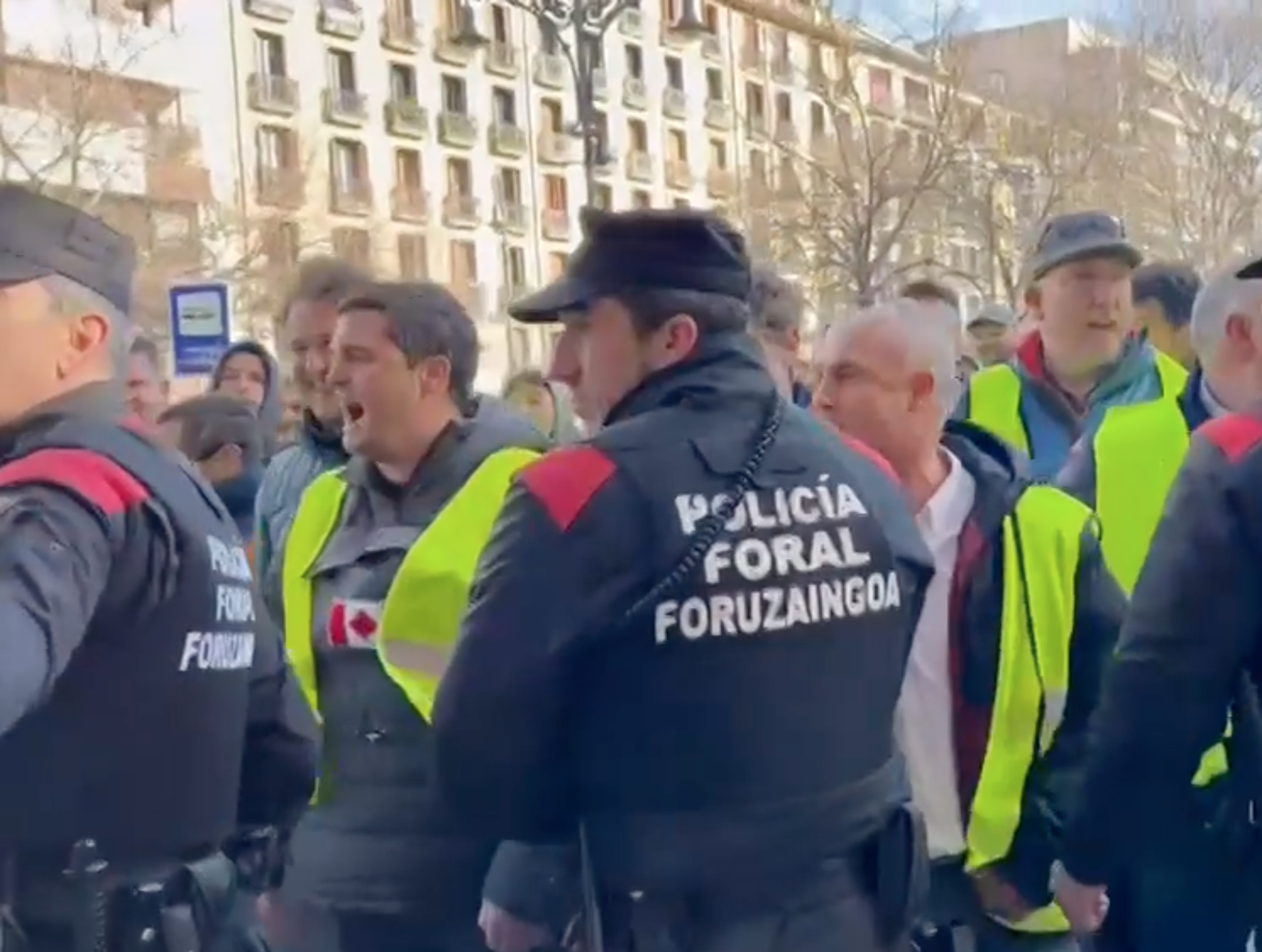If the peoples guarding the Amazon are expelled, the destruction will be speeded up.
- Leomarcio Araujo da Silva is part of the general direction of the Movimento dos Pequenos Farmers (MPA) movement. This work leads to a permanent debate with other movements and parties. With it, we try to understand the reality that Brazil is living from the peasants' point of view. “Historically, the analysis and ideas carried out by the rural environment have not been taken into account among the popular movements.”

The government of Jair Messias Bolsonaro came full of contradictions, as there is a difference between what you said before and what you did afterwards. What is the balance they make in MPA?
When we talk about Bolsonaro, there is something very contradictory and that needs to be looked at. The motto of his campaign was “Brazil above all and God above all”. The Brazilian people are very religious and played with that feeling, creating an alliance with evangelicals for the acquisition of power – much of the parliament is evangelical. But worse still, after creating a patriotic feeling of placing Brazil “above all”, it drove the privatization of goods. It put all that is Brazilian on sale. For us that is a betrayal, their other attitudes: prejudices, extremist, fascist, ignorant comments -- they haven't been a surprise. But privatization is a betrayal of the people who declared themselves in their favour.
The Bolsonaro Government wants to change working conditions and reform the pension system, which will have repercussions on the daily lives of the population. These are structural changes that are being adopted in Parliament with what we call ‘box b’. They are institutionalising what was previously illegal: the purchase of votes. Public money is being used for that, so that parliamentarians can approve their capital policies to buy. In the meantime, social movements and leftist parties are quite stagnant. We use social media, but the streets are empty. How is that lack of responsiveness possible? That is the question that comes to our debates.
In recent months, however, citizens have come out against education reform. Although the pension reform will affect families much more economically ...
Privatization has reached all aspects of life, each with its dimension. Pension reform will directly harm the poor. But we believe that education is more serious, because it calls into question the future: not only do we get rid of today’s bread, but also Brazil’s autonomy and decision-making capacity. A large part of the population will not be able to study and many of the marginalized peoples who have recently come to education will be left out again.
Worse, the contents will change and be staggered, some subjects will disappear, others will be banned... like the social ones. And these contents are precisely the most necessary for the debate of life models and for social transformation. Instead, technical content will prevail. The education system will be subjected in its entirety to an international hegemonic project based on dependency. This issue has led people to the streets, both in rural and urban areas, have had the ability to create alliances.
The pedagogy you call “educação do campo” in Brazil, the methodology created from the experience of movements and communities in land conflicts, is also in danger.
Since the beginning, Bolsonaro has had a strong collision with the educational system of social movements in rural areas. This education is based on the content and methodologies that farmers, baserritars, small producers, unemployed and other rural citizens need for their lives. It is they who have designed and developed, and public policies have guaranteed them in their system after many struggles. Now, that education is going to be suspended, or at least public aid is going to be lost. Bolsonaro wants to stop this empowerment and put rural peoples in the background, as in his imaginary the baserritars do not make much sense.

The reform of pensions, which initially seriously affected the rural environment, has finally chosen to leave its inhabitants out of the reform. Is it a real victory or a lie more?
It was a question of strategy. Because rural movements have more force than cities to get people out into the street. With the new system of quotations and changes in the number of years, many food producers were at risk of losing their withdrawal and the MPA went on a hunger strike to make the problem visible throughout Brazil. The Government has reversed this part of the reform in order to prevent similar protests. But it is not true that it does not affect the rural environment. The principle of solidarity will disappear and the withdrawal of the law from the Constitution will open the door to further changes, through the president’s decrees. Now we will not recognize it, but we will soon be taken away from it.
Bolsonaro has land reform in its sights and wants to change the law so that access to arms can be facilitated and those who work against private property can be shot.
INCRA has left no recourse and condition. The role of this institute is to carry out land reform and regularize the lands of traditional communities, such as the kilonbolos (created by blacks fueled from slavery) and indigenous peoples. But now it's almost gone. And on the subject of arms, there are some contradictions: if liberalization comes, it will not only be for the rich, who will have more chances of buying weapons, because the price is already rising, but for the small, for the poor, for the unburied... We'll see what's already happening in the favela in the countryside. With this policy, we will end up in the civil war, and they are designing that scenario: beaters and unearthed, all with weapons -- it's not going to be a very nice future.
Does the expulsion of indigenous peoples and the privatization and destruction of the commons go hand in hand?
The president has made a proposal for the Amazon to be managed together with other countries, even if they are Brazilian or Brazilian. This will increase the pressure on the goods and on the populations that inhabit them. Attacks, expulsions, expulsions and killings against indigenous communities have multiplied in recent months. Therefore, the nature and destruction of peoples go hand in hand.
For popular movements, climate change and ecological problems have been on the agenda for a long time, but now they are getting more and more. If the peoples who safeguard nature, who live with it, are expelled, the rate of destruction is increasing. On the one hand we have large projects, such as the MATOPIBA of the agribusiness (project that encompasses the states of Maranhão, Tocantins, Piaui and Bahia), but on the other hand the accumulation of land from the latifundistas and companies is increasing. How do we defend nature in this scenario?

However, in popular movements there are alliances, articulations and other initiatives. What are the strengths and weaknesses?
I would say that the most important thing is what we are learning, we are making a lot of reflections. For example, we are investigating what happens to us with elections. The PT (Workers' Party) is still the most important party in the world, even though they want to criminalise and outlaw it. But where does this party issue leave us?
For almost sixteen years we have had left-wing governments, but we have not done serious political training, as a part of the humble people has now supported Bolsonaro, and another part does not answer, we are disorganised. So, should we keep fighting to get more weight inside the PT? Or do we have to create other strategies? Empower yourself in the territories and fight otherwise? We have no answer, but now there is more dialogue between the movements and they are strengthening alliances, for example, between the city and the rural world. At the moment we denounce repression together, but we are also discussing which country we want, that is our challenge.
Since the start of the coup in 2016, popular movements have been watching PT and elections for three years, and that has put other tasks on the table. The next steps will have to be considered, although it is time to maintain safety and to do things smoothly ...
We are in a complicated time, politics is demonized, people are sick and want change. The point is that the current change has been bad. The coup and Bolsonaro came to put corruption on the agenda, but that concealed the totality of reality: the citizens did not have time to comprehend things well and occupy the streets – in the field the answer was greater, but by being far from the centers of power, our strength is not enough, it has no visibility.
Now we have to get back to popular work and find the right tools. At MPA, we believe that we also need to change the ways, the ones we used to use are no longer worth it. Vertical thoughts and proposals don't work, we have to rethink our structure, and when we rethink, I think we're taking an important step. Furthermore, in the struggle for sovereignty, especially for the MPA in the fight for food sovereignty, we must move from denunciations to proposals. People have no hope and live in a critical situation; although the important thing is to continue with the complaints and we are going to follow them, we want to take steps forward in positive initiatives and open ourselves to hope. We do not know how far we are going to go, but at least we have tried.
Are baserritars on vacation? They ask in school. The students have answered no. So, working every day, would you like to be baserritarra in the future? And if nobody wants to be a baserritarra, who is going to make food for us? The question stayed in the air.
For the health and... [+]
Much of the current left-wing movement, albeit intuitively, claims small-scale agriculture, without any doubt. However, this claim for smallness has its contradictions: a small farm, by definition, will not be able to produce a lot of food. And is that important? Well, in a... [+]
We have seen the peasants with power tractors, roads, bridges, blocking borders, and the heart made us “krak!” in solidarity, because we are also peasants children and brothers, because they are still striving to bring the farms ahead. We've heard protesters criticizing the... [+]
On 9 February, EHNE-Bizkaia and ENBA-Bizkaia, convened in Bilbao, held a concentration of demonstrations between the baserritars of Bizkaia and neighbours and neighbours who approached to show their solidarity. About a hundred tractors from different districts joined the area of... [+]
The presence in the city walks of a tractor that moves with ease and dexterity in the cornfields, causes a shock of images, an out-of-place device loses its elegance and strength in the city, just as the high-heel shoes lose when you see walking through the mountain. The change... [+]






















